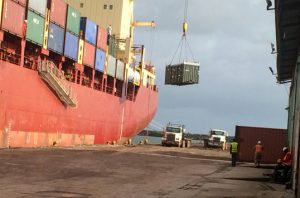No More Business as Usual in Africa?

France has long been criticized for falling short on enforcement of its international obligations to fight corruption abroad, including the OECD Anti-Bribery Convention that mandated member states to criminalize bribery of foreign public officials in international business transactions. That changed with the introduction of Sapin II, a new law similar to the U.S. Foreign Corrupt Practices Act and the UK Bribery Act that penalizes companies for failing to mitigate corruption risks in their operations, including third parties. A significant recent probe under this law shines the spotlight on Africa.
French tycoon Vincent Bollore and two of his associates have been placed under formal investigation over suspicious deals in Guinea and Togo, respectively. An advertising agency tied to Bollore allegedly undercharged the presidents of Guinea and Togo to help them win elections nearly a decade ago and, in return, the Bollore Africa Logistics company won contracts to operate ports in Conakry and Lomé. It is by far the most prominent case to be investigated in France for suspected corruption in Africa, and can have a significant demonstration effect throughout the continent, particularly in Francophone Africa. Importantly, the Sapin II Law also compels French firms to take preventive steps against corruption, including in their global value chains.
The enforcement of Sapin II is certainly a welcome development. Yet, the spread of international anti-corruption best practices in Africa still faces challenges, both in terms of country-level governance and external factors. One of them is the growing economic influence of China on the continent. China has become Africa’s main trading partner and facilitated large infrastructure projects through its One Belt One Road initiative. Frequent lack of transparency and accountability in such deals constitutes a worrying trend.
“Emerging nations that will take decades to incorporate ethical concerns into their search for market share” are a major obstacle to African countries adopting best practices, noted William Bourbon, head of the Paris-based anti-corruption association, Sherpa. He singled out China, saying that ”when it comes to corruption in Africa, [the Chinese] act with complete impunity.”
Laws such as Sapin II may increase the competition with Chinese firms that do not necessarily follow the same rules but they also put a premium on doing business with integrity that African companies can capitalize on if they want to join global value chains. It remains up to these companies, and up to African governments and civil societies, to choose the path they want to follow. Local companies involved in the Bollore scandal are finding that out the hard way.
Anna Kompanek is the Director of Global Programs at CIPE
